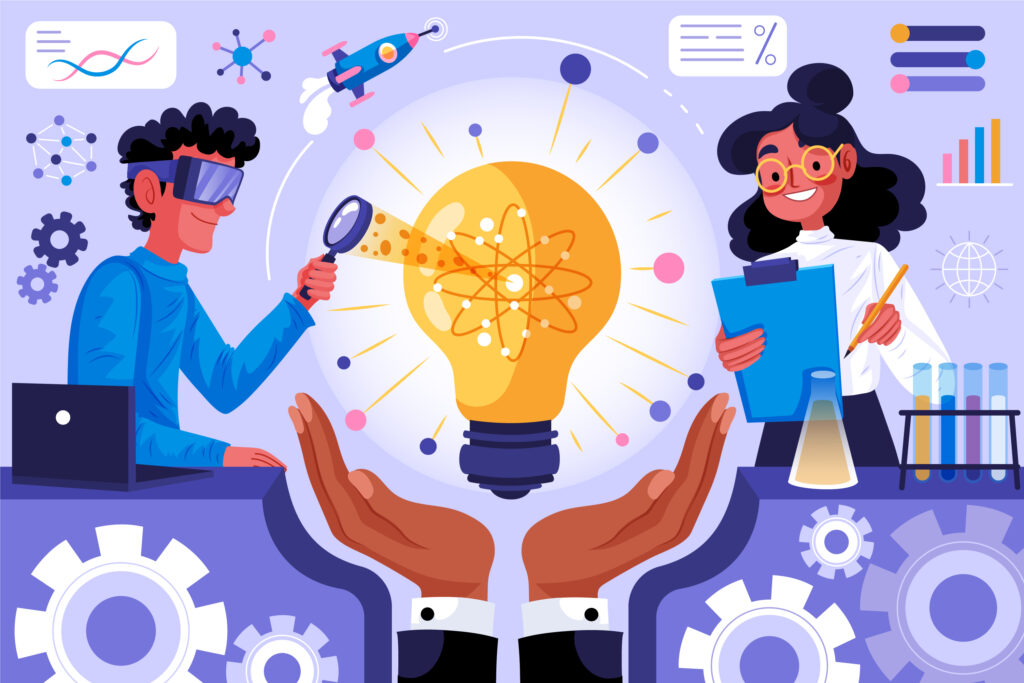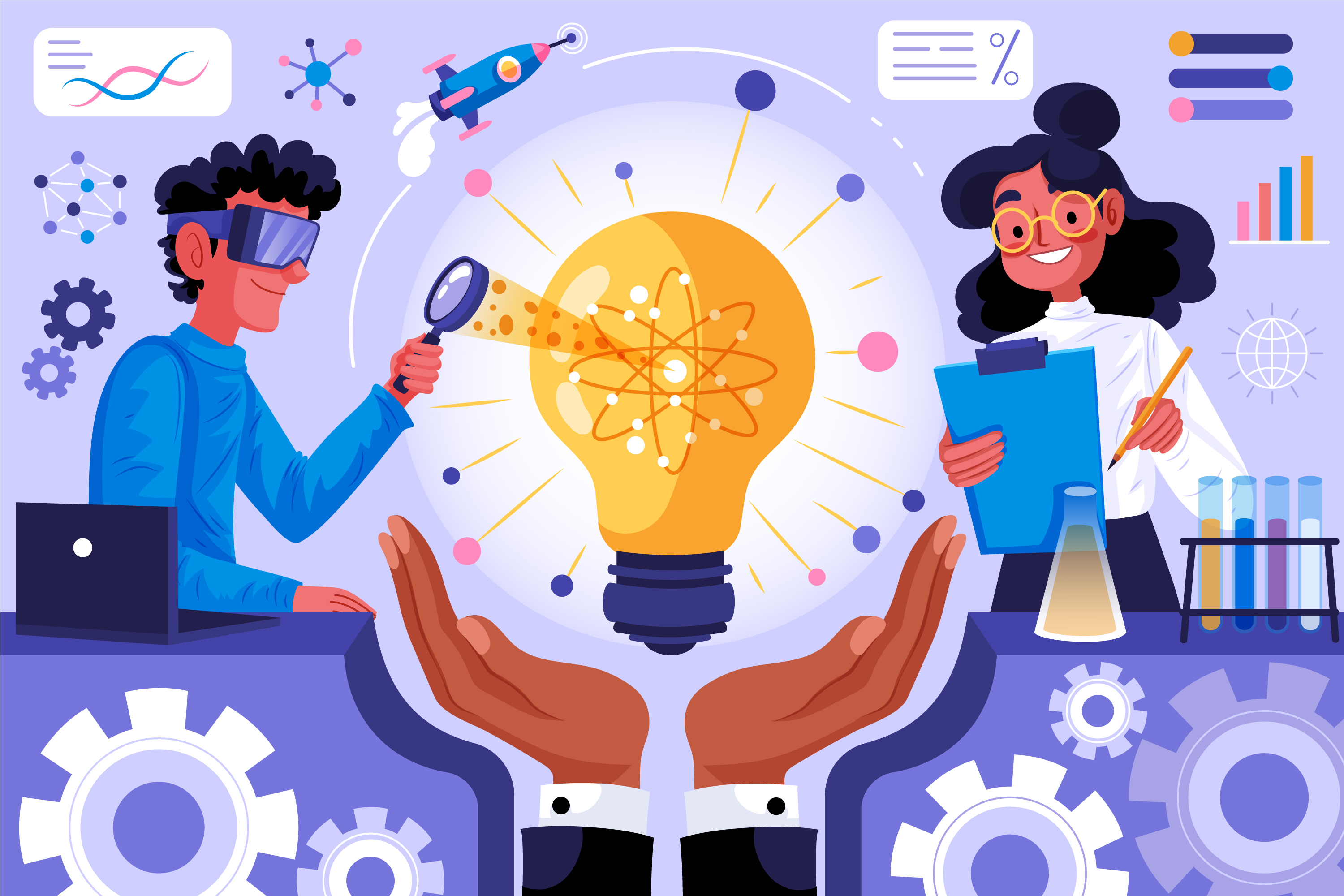In today’s rapidly evolving world, technology plays a pivotal role in shaping our societies and addressing pressing global challenges. From environmental conservation to healthcare, poverty alleviation to education, new innovations have emerged as powerful tools for positive change. This article explores how new innovations are making a significant impact in solving global challenges and creating a brighter future for all.

The Power of New Innovations
New innovations in technology have the potential to disrupt existing systems and drive transformative change. These cutting-edge advancements are not only revolutionizing industries but are also being harnessed to address some of the most critical issues faced by humanity. The unique blend of creativity, adaptability, and problem-solving capacity of these innovations is unlocking opportunities for sustainable development and progress on a global scale.
Revolutionizing Healthcare
One of the areas where new innovations have made a profound impact is healthcare. Technological advancements such as Artificial Intelligence (AI), machine learning, and the Internet of Things (IoT) have significantly improved patient care and diagnostics. AI-powered algorithms can analyze vast amounts of medical data to detect diseases at an early stage, leading to more effective treatments and reduced mortality rates. Moreover, telemedicine and remote monitoring solutions are enhancing access to healthcare services, particularly in underserved regions.
Promoting Environmental Conservation
As climate change continues to pose a grave threat to our planet, new innovations are playing a crucial role in promoting environmental conservation. Renewable energy solutions like solar, wind, and hydro power are gaining traction as viable alternatives to fossil fuels, reducing greenhouse gas emissions and mitigating climate change impacts. Additionally, advanced monitoring technologies are aiding in the preservation of wildlife and ecosystems, helping us better understand and protect fragile habitats.
Empowering Education and Digital Inclusion
Education is the foundation of progress, and new innovations are transforming the way knowledge is imparted and accessed. E-learning platforms, virtual classrooms, and interactive educational tools are making education more engaging and accessible to students worldwide. Furthermore, initiatives like low-cost tablets and internet connectivity projects are bridging the digital divide, enabling disadvantaged communities to access educational resources and participate in the digital age.
Fostering Financial Inclusion
Financial inclusion remains a significant challenge for millions of people around the world. However, new innovations in FinTech are disrupting traditional banking systems and expanding access to financial services. Mobile banking, digital wallets, and blockchain-based solutions are empowering individuals in remote and underserved regions to manage their finances and participate in economic activities more effectively.
Enhancing Disaster Response and Management
Natural disasters and humanitarian crises demand efficient response and management strategies. New innovations are revolutionizing disaster relief efforts by leveraging drones for rapid assessment and delivering aid to remote areas. Advanced data analytics and predictive modeling are improving disaster preparedness, enabling governments and organizations to deploy resources proactively and save more lives.
Combating Food Insecurity
Food insecurity remains a critical global challenge, affecting millions of people worldwide. New innovations in agriculture, such as precision farming and vertical farming, are revolutionizing food production and distribution. These technologies increase crop yields, optimize resource utilization, and reduce environmental impact, ultimately contributing to more sustainable and resilient food systems.
Advancing Clean Water Access
Access to clean water is a fundamental human right, yet it remains a distant dream for many. New innovations are tackling this challenge by developing cost-effective and sustainable water purification systems. Innovative solutions like solar-powered desalination plants and portable water filtration devices are making significant strides in providing clean and safe drinking water to communities in need.
Strengthening Social Welfare
Innovative technologies are also playing a crucial role in strengthening social welfare programs. Data-driven approaches and AI algorithms are improving the efficiency of social support systems, ensuring that resources reach those who need them most. These innovations are reducing bureaucratic hurdles, enhancing transparency, and enabling more targeted interventions to alleviate poverty and support vulnerable populations.
Conclusion
As the world faces complex and interconnected challenges, new innovations are emerging as a beacon of hope. Through their ingenuity and adaptability, these technological advancements are driving positive change across various sectors and making significant strides in solving global challenges. From healthcare to environmental conservation, education to disaster response, these innovations are reshaping our future and offering us a promising path towards a more sustainable and equitable world. Embracing and supporting these transformative technologies is vital for building a better future for generations to come.
Related Articles:
1. How is technology helping to solve global challenges?
2. How digital technologies can be used to solve the world’s …
3. Ten Big Global Challenges Technology Could Solve




